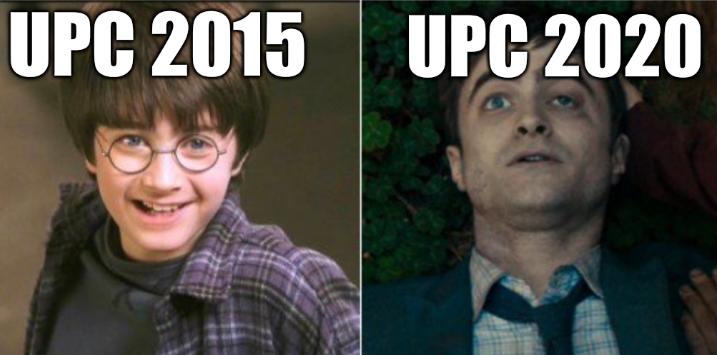

Their articles didn't age well, did they?
THE media and individual journalists have given all sorts of excuses for not covering EPO corruption. I've heard all sorts of excuses; sometimes the publishers spike pieces and discourage writers; it's a top-down 'thing'...
"They literally bribe media and academia to recite lies."The founder of IP Kat (before it was hijacked) also founded Managing IP. As a scholar he wasn't reluctant to blast the EPO for its abuses. But IP Kat of 2020 deletes comments of people who point out EPO abuses. That's how ridiculous it has become!
We'd note with concern that Managing IP is still taking money to print lies of law firms for a fee, presenting these as "reports" or "articles" (here is a new example) and like Lexology et al (IAM's parent company) it also publishes as "Opinion" the corporate position of companies. "Laura Gisler," this one says, "IP head at Volvo-owned startup Polestar, explores the perils of joint IP and suggests better strategies for companies partnering with startups..."
What kind of "press" is this?
Imagine articles about climate being composed by GE and Exxon. This is just wrong. And since we've mentioned Lexology, how about this new piece from Team UPC, to which Lexology served as an amplifier (e.g. in Google News) for nearly a decade, printing endless lies?
Tilman Müller-Stoy and Rudolf Teschemacher (Bardehle Pagenberg), who pushed an illegal bill and an unconstitutional coup, refuse to allow facts to get in their way, having just published a truly ridiculous piece pretending the death of the UPC is just an "Operational Accident". This merits a quick response as it contains many falsehoods. For instance, they say this:
The contentious point within the FCC was whether an obligation in an international treaty exposing German citizens to acts of an international authority can be the basis of a constitutional complaint by an individual before the act conferring the competence has entered into force. The majority of 5:3 judges said yes, taking the position that any conferral of judicial functions on an international court modified the allocation of jurisdiction to the courts as foreseen in the GG and, in this respect, constituted an amendment of the German Constitution in substantive terms. In this context, the FCC accepted a claim of a citizen for having the formal aspects of conferral reviewed, arguing that competences conferred on another entity under international law were usually "lost" and could not easily be regained by the legislator.
According to the majority of the judges of the FCC, the legal basis of this approach is the democratic principle laid down in Article 38 GG allowing a citizen to claim that sovereign rights are only conferred in the ways provided for by the German Constitution.
[...]
The process determining whether a Plan B will be pursued, may start now. However, it must not only involve the legal questions addressed above. It should also address those left undecided in their substance by the FCC. It would certainly not be a responsible political approach to establish a court system which will be under foreseeable and avoidable legal attacks before national courts and before the CJEU.
A further necessary element of discussion will be to keep the system attractive for industry. The amounts of renewal fees fixed after years of discussion at the "true top four" level is no longer justified considering that an average applicant desiring protection in three or four EPC member states will have to pay additional renewal fees for the UK. Thus, the restricted scope of the unitary patent should be reflected in a lower level of renewal fees. Otherwise, the unitary patent will only be used by applicants maintaining protection at a large level, e.g. the pharmaceutical industry. Why not use this opportunity to also reconsider the consensus reached among the contracting states that no state should get less from the revenue of renewal fees than under the system of the EP bundle patent (which– frankly – is a consensus at the expense of the users)?
Finally, it could be worthwhile to use the necessary discussions to repair shortcomings of the UPCA recognized in the meantime. The opt-out / opt-in regulations have been criticized as failed in terms of legislative formalities. Further, there are no sound reasons for the compulsory inclusion of European bundle patents in the jurisdiction of the UPC – free competition between the UPC and the national courts would probably be a better solution, and the UPC would prevail if the efficiency of its proceedings and the expertise of its judges are convincing. Otherwise, users would be forced to use (available) indirect ways of maintaining access to national courts. The draft of the rules of procedure could be made leaner by eliminating elements which are based on UK concepts rather than on continental European ones. This might result in a simplification of the procedure and, thus, in cost reductions. It is worth noting that the (high) caps on reimbursable attorney fees have been criticized in particular as they are hardly acceptable for SMEs.